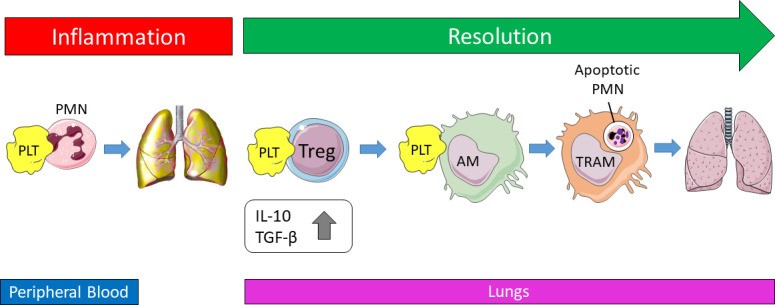
Platelets facilitate the onset of bacterial lung inflammation through interaction with neutrophils in peripheral blood, but switch to interacting with T reg cells during the start of the resolution phase, enabling platelet–T reg cell recruitment into the lungs. This is accompanied by the emergence of elevated levels of the anti-inflammatory cytokines IL-10 and TGF-β. Furthermore, platelets transcriptionally reprogram alveolar macrophages toward an anti-inflammatory phenotype, which allows significantly increased efferocytosis, which results in increased clearance of apoptotic neutrophils. Altogether, this leads to resolution of pulmonary inflammation. PLT, platelet; PMN, neutrophil; AM, alveolar macrophage; TRAM, transcriptionally reprogrammed alveolar macrophage.
